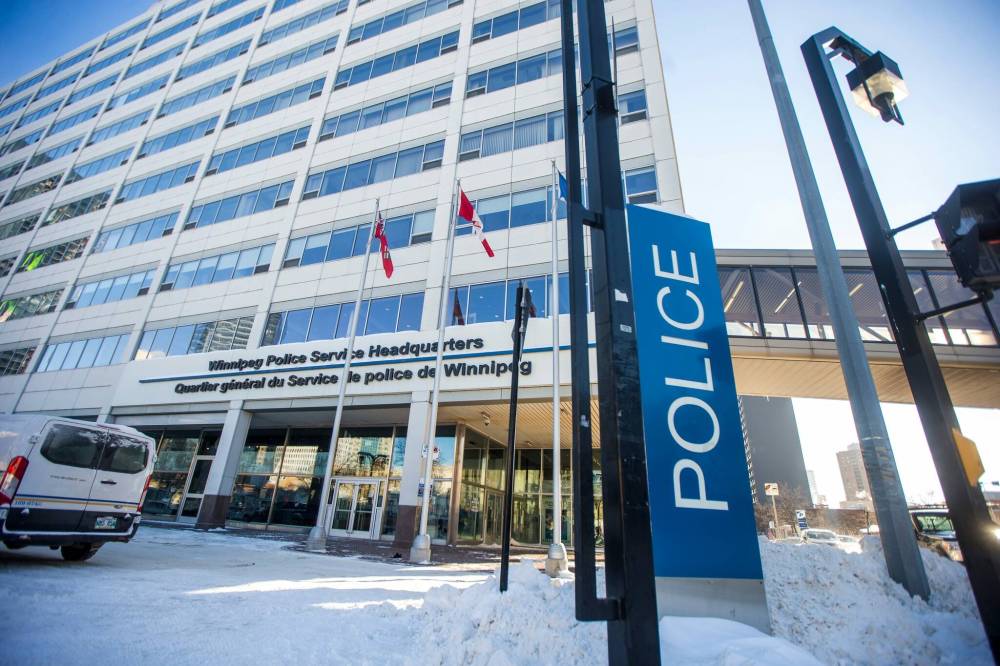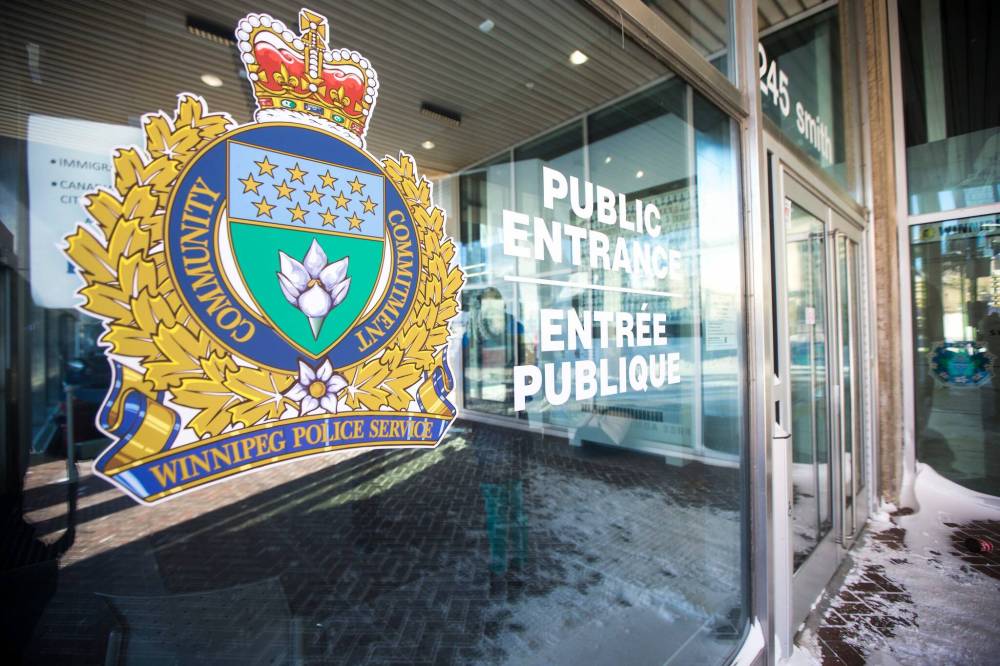Premier holds power to get to bottom of police HQ scandal
Read this article for free:
or
Already have an account? Log in here »
To continue reading, please subscribe:
Monthly Digital Subscription
$0 for the first 4 weeks*
- Enjoy unlimited reading on winnipegfreepress.com
- Read the E-Edition, our digital replica newspaper
- Access News Break, our award-winning app
- Play interactive puzzles
*No charge for 4 weeks then price increases to the regular rate of $19.00 plus GST every four weeks. Offer available to new and qualified returning subscribers only. Cancel any time.
Monthly Digital Subscription
$4.75/week*
- Enjoy unlimited reading on winnipegfreepress.com
- Read the E-Edition, our digital replica newspaper
- Access News Break, our award-winning app
- Play interactive puzzles
*Billed as $19 plus GST every four weeks. Cancel any time.
To continue reading, please subscribe:
Add Free Press access to your Brandon Sun subscription for only an additional
$1 for the first 4 weeks*
*Your next subscription payment will increase by $1.00 and you will be charged $16.99 plus GST for four weeks. After four weeks, your payment will increase to $23.99 plus GST every four weeks.
Read unlimited articles for free today:
or
Already have an account? Log in here »
Hey there, time traveller!
This article was published 12/05/2022 (1305 days ago), so information in it may no longer be current.
It’s time for Premier Heather Stefanson to do her part by shining light on the lingering scandals surrounding the construction of the Winnipeg Police Service headquarters and a host of other land deals.
For five years, the Progressive Conservative government has rejected calls by Winnipeg Mayor Brian Bowman for a judicial inquiry into the skulduggery surrounding the HQ project. Although not dismissing the idea, Stefanson — both as premier and previously as justice minister — claimed the province could not consider an inquiry because of ongoing criminal and civil proceedings.
However, those very proceedings make it clear an inquiry must be held.

In 2019, after five years and two RCMP criminal investigations — the second of which was revealed just this week — Manitoba Justice declined to press criminal charges. Undeterred, the city decided to file civil suits against Phil Sheegl, the city’s former chief administrative officer, and officials from Caspian Construction, the project’s general contractor.
At that time, there were many in Winnipeg’s legal community who thought it was unusual for Manitoba Justice to balk at laying charges after five years of police work. It would be fair to say RCMP don’t typically spend five years on a wild goose chase. The simple fact investigators did, in fact, forward a case to prosecutors suggests they found something of value.
Concerns about Manitoba Justice’s handling of the file were heightened again in March, when Court of Queen’s Bench Justice Glenn Joyal determined Sheegl had accepted $327,000 in bribes from Caspian in what he described as a “breach of trust and breach of loyalty.” He ordered Sheegl to pay the city almost $700,000 in penalties and damages.
Joyal’s choice of words, and his confidence about his conclusions, are both important.
Breach of trust can be a criminal offence and a civil offence. In the criminal context, prosecutors would have to prove the accused deliberately intended to commit an offence. Although it’s impossible to tell for sure outside a court, the complexity of the transactions, and clear efforts to cover up the payments to Sheegl, raise questions about how close this was to criminal breach of trust.
It’s even more curious when you consider the civil case relied on the evidence uncovered by the RCMP investigation. Every email, text, handwritten note and transaction record in the civil case was, in fact, uncovered through the RCMP investigation.
Why not just ask Manitoba Justice to reconcile its decision?
Based on the principles of “prosecutorial discretion,” Crown prosecutors typically decline to explain their decisions even in cases where prosecutorial discretion is one of the issues of concern.
The only exception to this tradition is those rare cases when a judicial inquiry is called.

In 2008, the former NDP government struck a commission to review the circumstances of the 2005 death of Crystal Taman — who was killed by a drunk off-duty police officer — and the subsequent investigation.
Public outcry over a particularly lenient plea bargain for the officer (he served no jail time) convinced the government to dig deeper.
That decision did not disappoint: with police and prosecutors forced to testify, the Taman inquiry revealed a culture of corruption and incompetence.
There is also the 2006 inquiry into the James Driskell wrongful murder conviction. Driskell’s conviction was quashed by the federal justice minister in 2004, but only during the inquiry did the public fully learn about the police and prosecutorial corruption.
The question faced by Stefanson right now is simple: are the police headquarters and related land deals worthy of a commission of inquiry?
Beyond the sheer monetary value of the transactions, Stefanson should consider that this could be — if the allegations against Sheegl and his close friend former mayor Sam Katz are true — a breach of trust worthy of the hall of shame wing reserved for senior Canadian public officials.
Having said that, it’s important to remember a judicial inquiry will not satisfy those with an appetite for a criminal trial.
Commissions of inquiry almost always have legal power to compel testimony and other evidence. However, because the Charter of Rights and Freedoms gives everyone constitutional protection against self-incrimination, anything said at an inquiry is generally considered inadmissible in a criminal proceeding.
Even with those limitations, Stefanson should be able to find tremendous value in the act of exposing the wrongdoing in graphic detail, both to satisfy the public interest and establish a clear record of what transpired.

Plus, a deep dive would give the city valuable information about how to avoid similar scandals.
Stefanson continues to lean heavily on the fact other civil proceedings are outstanding. In March, she said before a final decision to hold an inquiry, “we need to make sure that all avenues are exhausted.”
Memo to the premier: those avenues are nearly exhausted and when they are, your excuse will be exhausted. The public that you represent deserves to know more about what happened at city hall and you have the power to make that happen.
All the public needs is for the premier to do her part.
dan.lett@winnipegfreepress.com

Born and raised in and around Toronto, Dan Lett came to Winnipeg in 1986, less than a year out of journalism school with a lifelong dream to be a newspaper reporter.
Our newsroom depends on a growing audience of readers to power our journalism. If you are not a paid reader, please consider becoming a subscriber.
Our newsroom depends on its audience of readers to power our journalism. Thank you for your support.


























